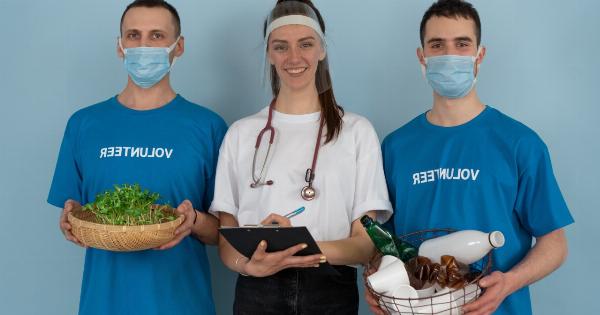When it comes to health issues, misconceptions and myths tend to become ingrained in popular belief. Hemorrhoids, often referred to as piles, are no exception.
These swollen blood vessels in the rectum or anus can cause discomfort and pain, leading to various assumptions about their nature, causes, and treatments. However, it’s essential to separate the facts from the fiction to ensure proper understanding and effective management of this condition. In this article, we will debunk ten popular misbeliefs surrounding hemorrhoids.
Let’s dive in and shed light on the truth behind these misconceptions.
Hemorrhoids Are Caused Only by Sitting for Prolonged Periods
A common misconception is that hemorrhoids solely result from sitting for extended periods, especially on hard surfaces. While excessive sitting can contribute to the development of hemorrhoids, it is not the only cause.
Hemorrhoids can also be caused by factors such as chronic constipation, straining during bowel movements, pregnancy, obesity, a low-fiber diet, and even genetics. It’s crucial to address the multiple potential causes of hemorrhoids to effectively prevent and manage this condition.
Hemorrhoids Are Only a Result of Poor Hygiene
Contrary to popular belief, poor personal hygiene alone does not cause hemorrhoids. While maintaining proper hygiene is important for overall health, it is not a direct cause of hemorrhoids.
Hemorrhoids are primarily caused by increased pressure on the veins in the rectum and anus, leading to swelling and inflammation. Therefore, focusing on avoiding constipation, adopting a healthy diet, and practicing good toilet habits are vital in managing and preventing hemorrhoids.
Hemorrhoids Are Exclusively a Problem for the Elderly
Although it’s true that the likelihood of developing hemorrhoids increases with age, they can affect people of all age groups. Hemorrhoids are not exclusively an issue for the elderly.
Factors such as pregnancy, obesity, occupational hazards involving prolonged sitting or heavy lifting, and a sedentary lifestyle can contribute to the development of hemorrhoids in individuals of any age. It’s essential to be aware of the risk factors and take preventive measures accordingly.
Hemorrhoids Can Only Be Treated Surgically
While surgical intervention may be necessary for severe cases of hemorrhoids, it is not the only treatment option available.
Non-surgical treatments, such as lifestyle modifications, over-the-counter medications, topical creams, and sitz baths, are often effective in managing mild to moderate hemorrhoids. Proper diet, regular exercise, and adequate fluid intake can go a long way in preventing and alleviating the symptoms of hemorrhoids. Surgical intervention is typically reserved for cases that do not respond to conservative measures.
Only Women Can Get Hemorrhoids
Although pregnancy and childbirth are significant risk factors for developing hemorrhoids in women, hemorrhoids can affect individuals of all genders.
Men can also develop hemorrhoids due to factors such as chronic constipation, heavy lifting, or engaging in activities that involve prolonged sitting. The prevalence of hemorrhoids may vary between genders, but it is not exclusive to women.
Supplements and Creams Can Cure Hemorrhoids Overnight
There is no magical overnight cure for hemorrhoids. While over-the-counter creams, ointments, and supplements can provide temporary relief from symptoms such as itching and pain, they cannot eliminate hemorrhoids instantly.
Managing hemorrhoids requires a comprehensive approach, including lifestyle modifications, dietary changes, and sometimes medical intervention. It’s essential to consult a healthcare professional for appropriate guidance on managing and treating hemorrhoids.
Only Obese Individuals Can Develop Hemorrhoids
While obesity can increase the risk of developing hemorrhoids, this condition is not exclusive to overweight individuals.
Hemorrhoids can affect individuals with various body weights due to factors such as chronic constipation, straining during bowel movements, and a sedentary lifestyle. It’s crucial to adopt a healthy lifestyle, regardless of weight, to prevent the development of hemorrhoids and promote overall well-being.
Exercise Aggravates Hemorrhoids
Exercise, when performed correctly and within one’s physical capabilities, does not aggravate hemorrhoids. In fact, regular exercise can help prevent constipation and promote healthy bowel movements, reducing the risk of developing hemorrhoids.
Engaging in low-impact exercises, such as walking, swimming, yoga, or cycling, can be beneficial. However, individuals with severe hemorrhoids or complications should consult their healthcare provider for personalized exercise recommendations.
Hemorrhoids Are a Result of Weakness in the Blood Vessels
Contrary to popular belief, hemorrhoids are not caused by weakness in the blood vessels alone. Increased pressure on the veins in the rectum and anus is the primary cause of hemorrhoids.
Factors such as chronic constipation, straining during bowel movements, and prolonged sitting can contribute to this increased pressure, leading to the development of hemorrhoids. Understanding and addressing the underlying causes is crucial for effective management of this condition.
Hemorrhoids Are Indicative of Colorectal Cancer
Hemorrhoids are a common condition and are usually not indicative of colorectal cancer. While rectal bleeding can be a symptom of both hemorrhoids and colorectal cancer, it’s important not to jump to conclusions.
Hemorrhoids are generally harmless and can often be managed with conservative measures. However, if you experience persistent rectal bleeding or any other concerning symptoms, it’s crucial to consult a healthcare professional to rule out any serious underlying condition.


























